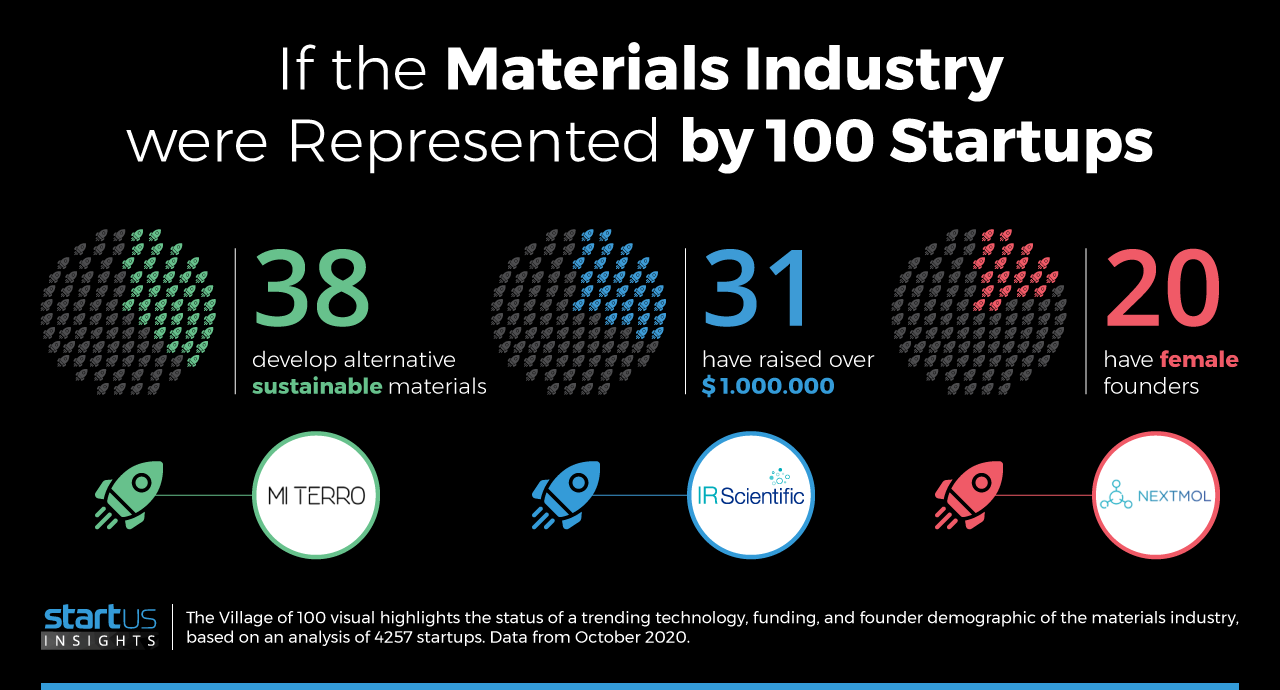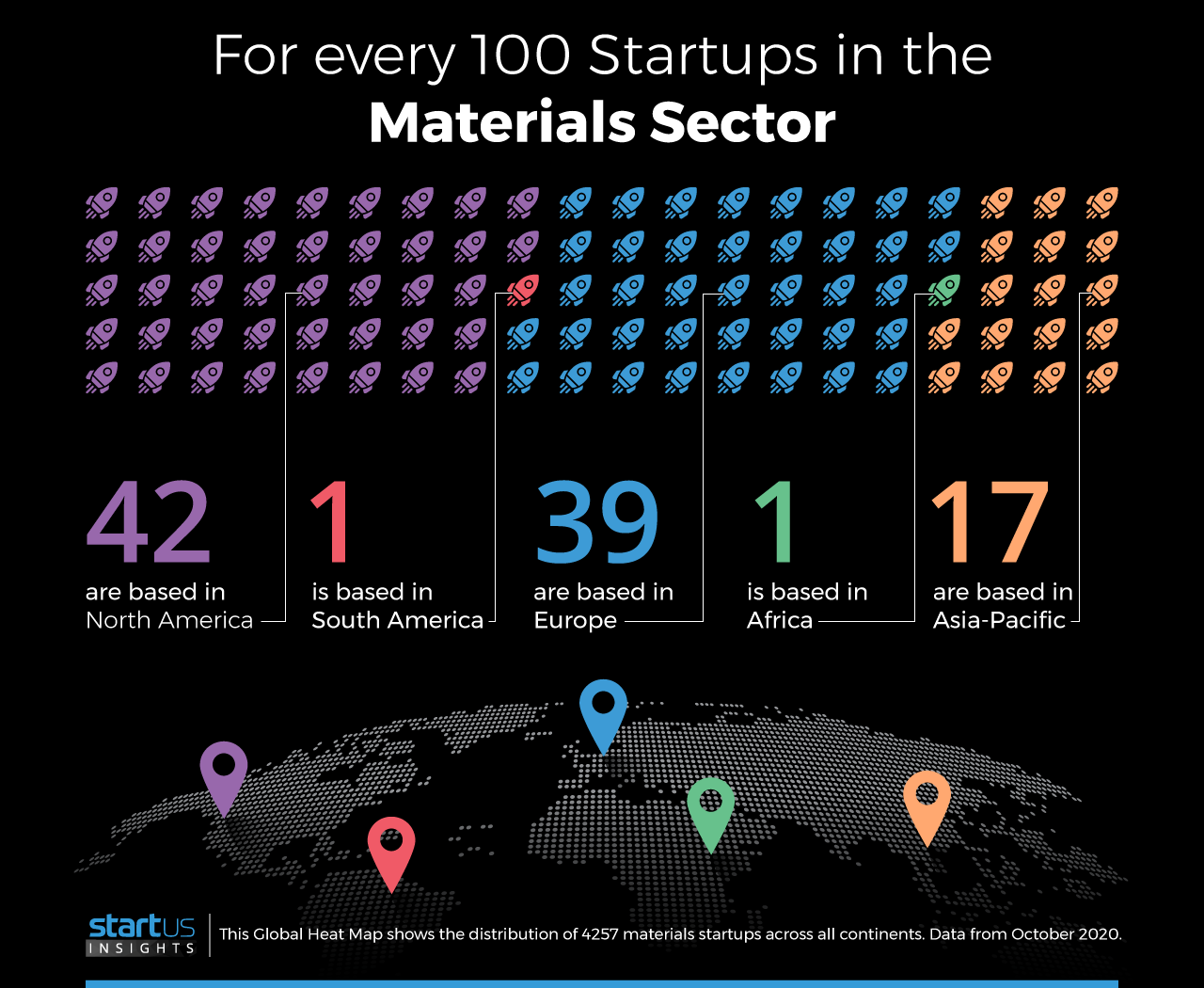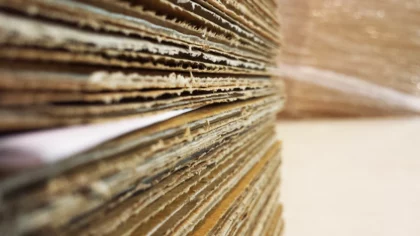Village of 100: The Materials Industry Represented by 100 Startups
This report gives you a clear-cut overview of what the materials industry looks like represented by 100 global startups. More specifically, you get answers to some of your most burning questions in the Village of 100 Startups graphic below. The graphic highlights how many startups develop alternative sustainable materials, how many raised more than $1M, and how many have female founders. Additionally, you get to discover three emerging material startups to watch.
Our Innovation Researchers analyzed 4.257 startups to answer these three questions, taking into account factors such as founder demographic, funding, founding year, locations, and more. The data behind this comes from the StartUs Insights Discovery Platform, covering 1.379.000+ startups & scaleups globally. And while we looked at a few parameters here, the platform provides you with an extensive range of filters to ensure you discover the right startups and innovations for your needs.
4 in 10 Startups Develop Alternative Sustainable Materials
Sustainability is the focus of nearly 40% of all startups in the materials sector. This trend is driven in response to climate change and growing awareness among consumers. Startups work on bio-based chemicals and compostable material alternatives that lower the carbon footprint in synthesis and usage.
Mi Terro is a US-based startup developing technology that converts food waste into alternatives for plastic and cotton. The startup’s Pro-Act technology extracts casein protein from spoiled milk. The solution uses self-assembly purification and dynamic flow shear to turn the casein into sustainable fibers.
3 in 10 Startups Raised $1M or more
Among materials startups that have raised any funding in the last 5 years, 31% have raised over $1 million. The growth in investments comes from both focused accelerators and funds, as well as other industries looking for advanced materials. In 2019, TDK, for example, set aside a $50 million venture capital fund to invest in early-stage startups.
IR Scientific is a Candian startup manufacturing unique inorganic polymers. The startup’s polymers are applied as biomaterials in oral health and cosmetic products. Sensi-IP provides the ideal particle size for full tubule occlusion, acid-resistant fluorapatite precipitation, low abrasion for oral mouthwashes and rinses.
1 in 5 Material Startups have Female Founders
20% of all materials startups have at least one female co-founder. As the proportion of women among STEM graduates increases, the number of female founders is expected to rise too. Today, women are bridging the science of chemistry and life sciences with the business of materials.
Spanish startup Nextmol builds a cloud-based platform to accelerate chemical discovery. The startup combines atomic-scale models and data-driven chemistry to characterize and predict promising candidate molecules.
The Global Distribution of Materials Startups
The Global Distribution Map below highlights the geographical distribution of materials startups globally. Over 80% of the startups in the industry are located in either North America or Europe. Asia-Pacific also houses 700+ startups with innovations ranging from lightweight materials and recyclable materials to carbon allotropes.
What else is happening in the Materials Industry?
While alternative sustainable materials occupy a major share of the materials sector, startups are also working on other innovative solutions. Some of these include responsive materials, metal-organic frameworks (MOFs), conductive polymers, and nanocomposites. Also, materials startups across different hubs work on different advanced materials, depending on the technological strengths of the particular region.
Are you looking for innovative materials solutions or technologies? Explore our Top 10 Materials Industry Trend Report or let us do the work for you. We keep you up-to-date on the latest technology and emerging startups and give you actionable innovation intelligence – quickly and exhaustively.











